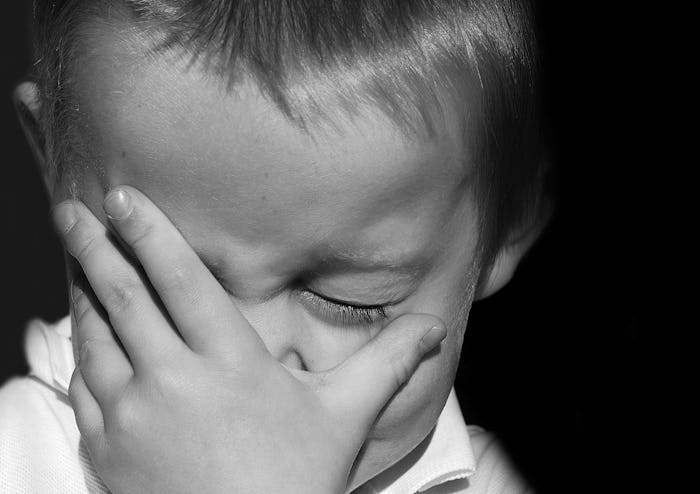Punishing children with a slap to the behind is a practice that dates back centuries and spans the entire globe. Although spanking is considered a form of physical violence, many parents who do it believe that it's beneficial for children, helping them to understand what they did wrong and ultimately improving their behavior. Developmental psychologist Elizabeth Gershoff, however, has been studying and pondering the validity of spanking for years, and she's definitively concluded that it does not have a positive effect on kids; in fact, a comprehensive review of the evidence she conducted concluded that spanking is actually bad for kids and may cause a variety of behavioral problems.
Along with University of Michigan professor Andrew Grogan-Kaylor, Gershoff conducted a meta analysis that encompassed a total of about 161,000 children and spanned about 50 years. The results, published in Journal of Family Psychology, produced evidence that spanking is linked with outcomes like increased aggression, anti-social behavior, and mental health and cognitive problems as kids grow up.
Still, about 80 percent of children in the world are spanked or otherwise physically punished, The Chicago Tribune reported. Gershoff attributed this phenomenon to factors like religious beliefs and the misconception that spanking is effective. Most commonly, she said, parents spank their children because they themselves endured the punishment as kids.
Forty-five percent of parents in the United States have been spanked, according to a 2015 Pew Research Center survey. Many believe that they "turned out OK" despite this — or maybe even because of it. Gershoff told Vox that that's certainly not the case:
Let's be realistic, most people who were spanked were spanked as children. And as everyone likes to tell me, they turned out okay. And me included. I think I turned out okay despite being spanked.
The question is: Did other things counter balance the spanking?
I don't think we learn to be good people who care about others by being hit. … [We learn from our parents,] who talk to us about the value and the morality of sharing with other people and taking turns and thinking about others' feelings.
CNN reported in 2014 that corporal punishment literally causes kids to have less gray matter in their brains. And this gray matter is what allows the brain to learn self-control. "The sad irony is that the more you physically punish your kids for their lack of self-control, the less they have," feature columnist Sarah Kovac wrote.
Study after study shows that spanking simply does not make kids more well-behaved and that the potential effects are actually quite deleterious. Just like health care and technology, parenting is constantly evolving. While it may be true that kids all react differently to physical punishments of varying degrees of severity, I'm definitely convinced that spanking is certainly not the way to go. It seems as though that time would be much better spent talking to kids about unacceptable behavior and outlining how to improve it.
